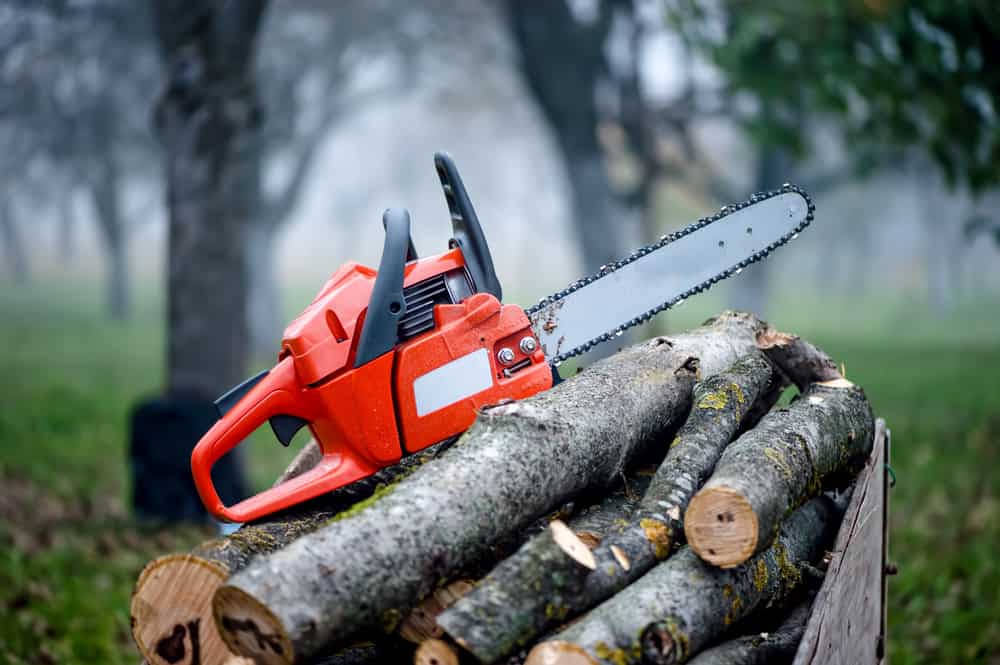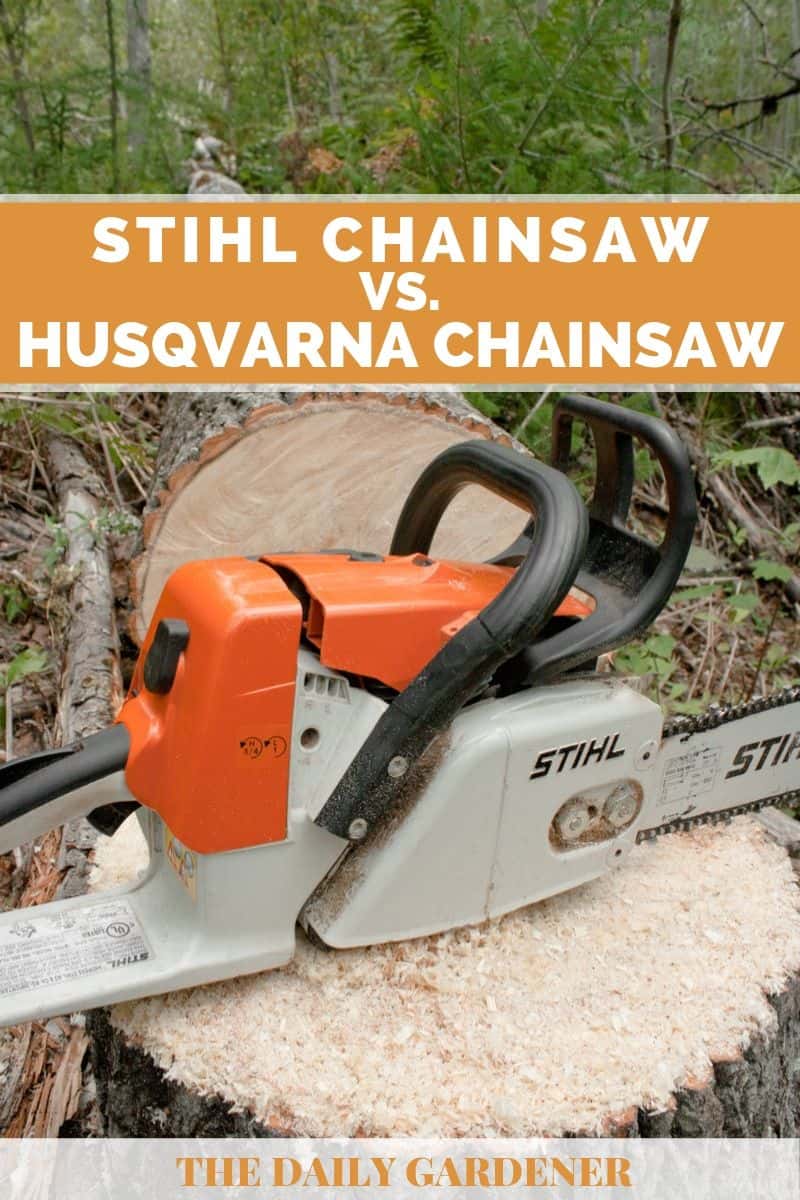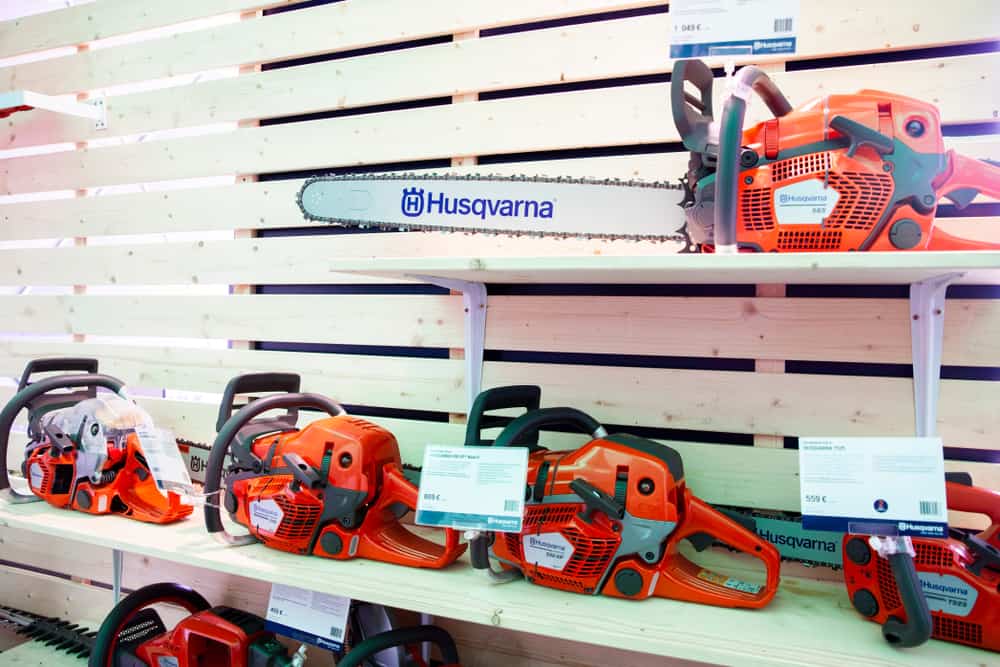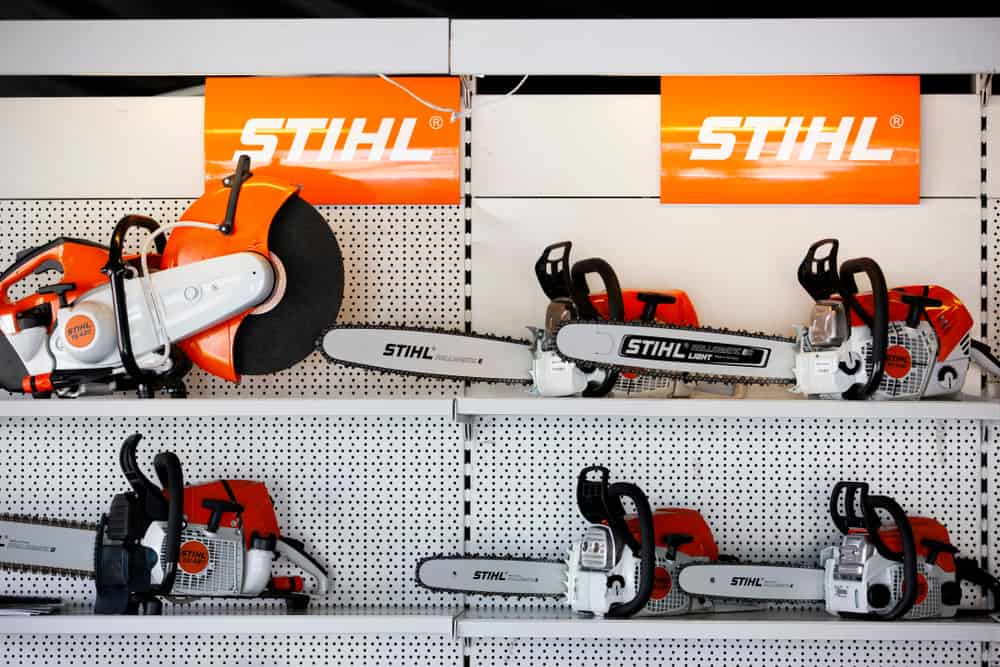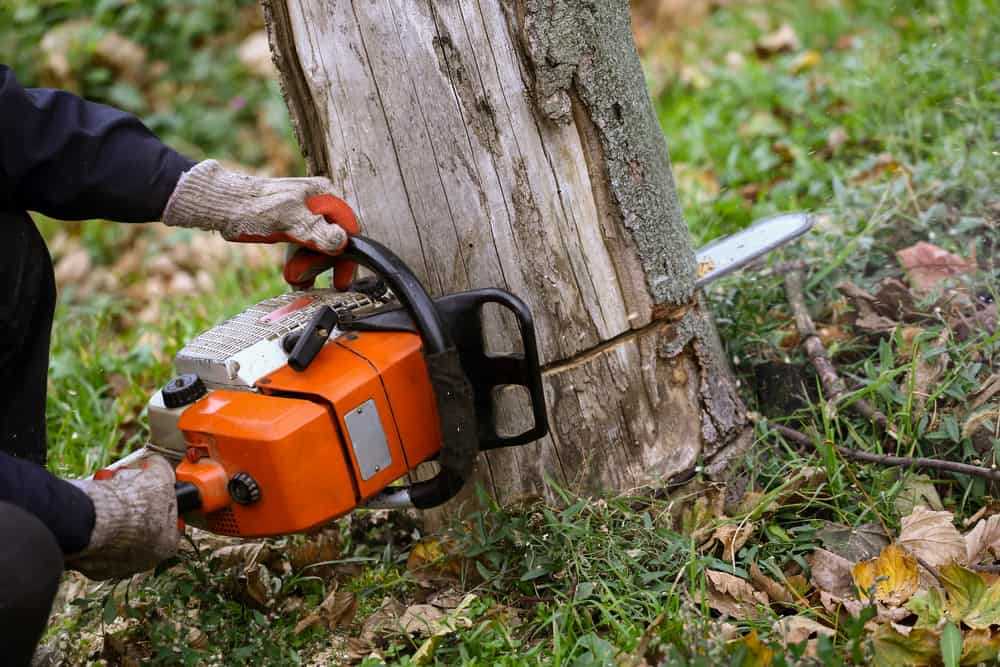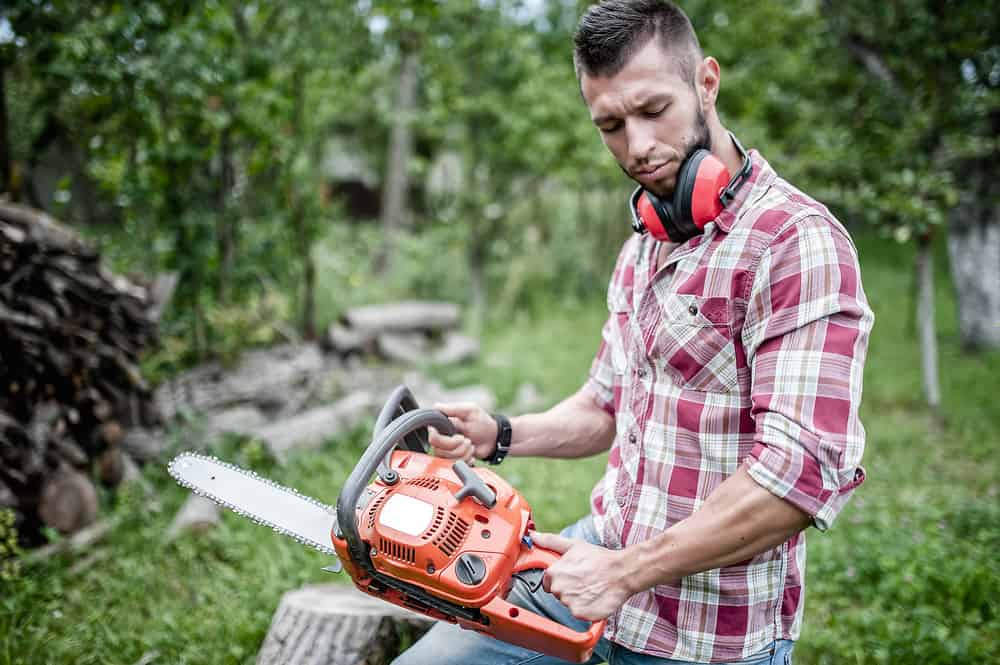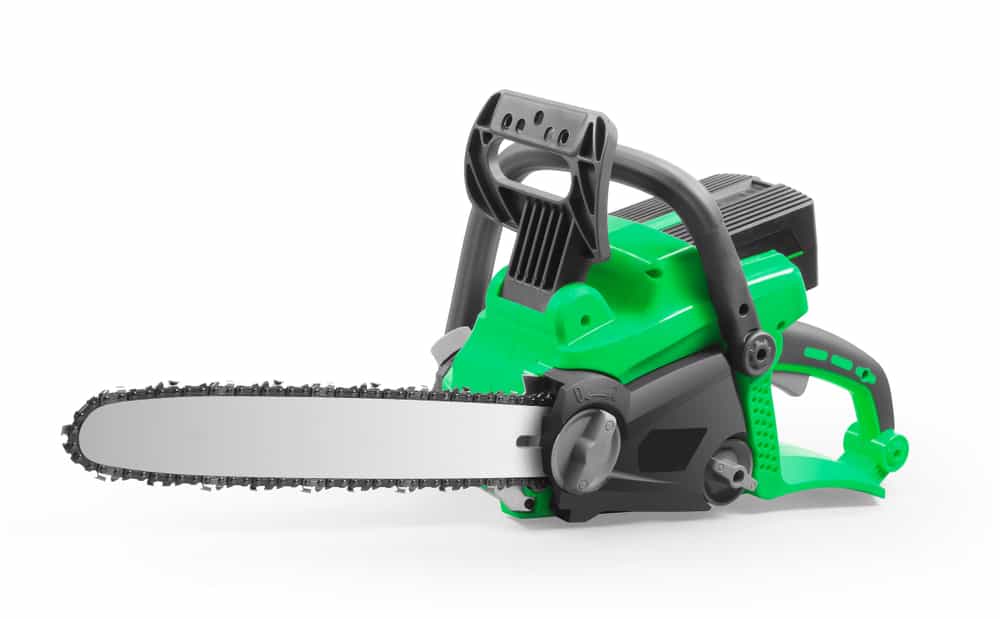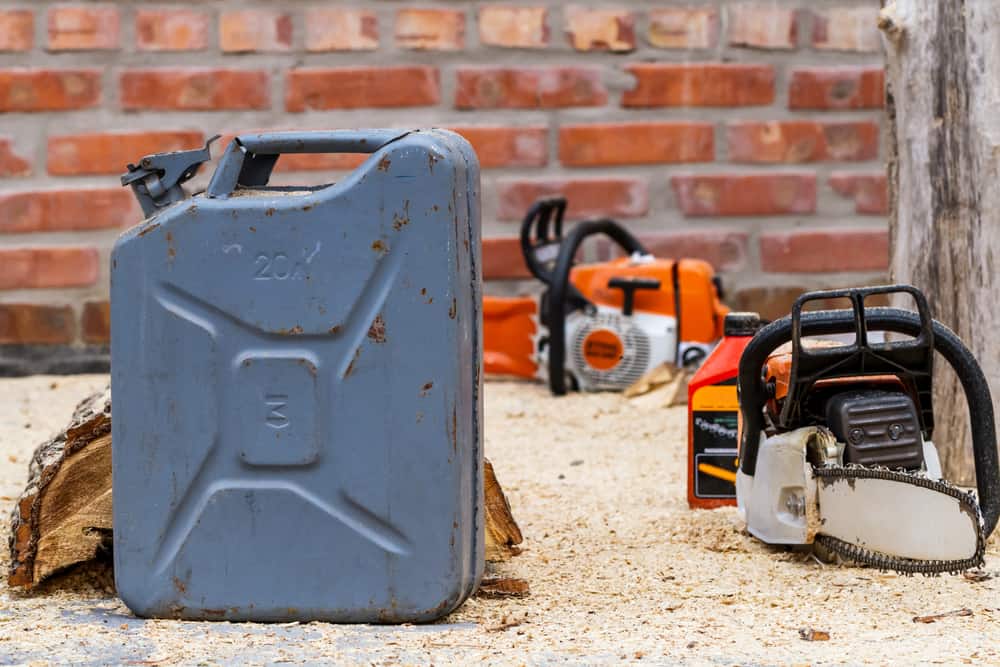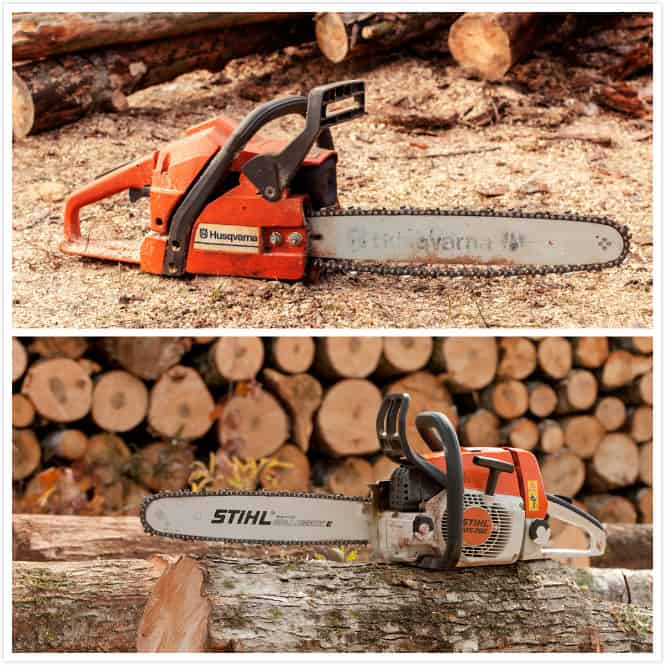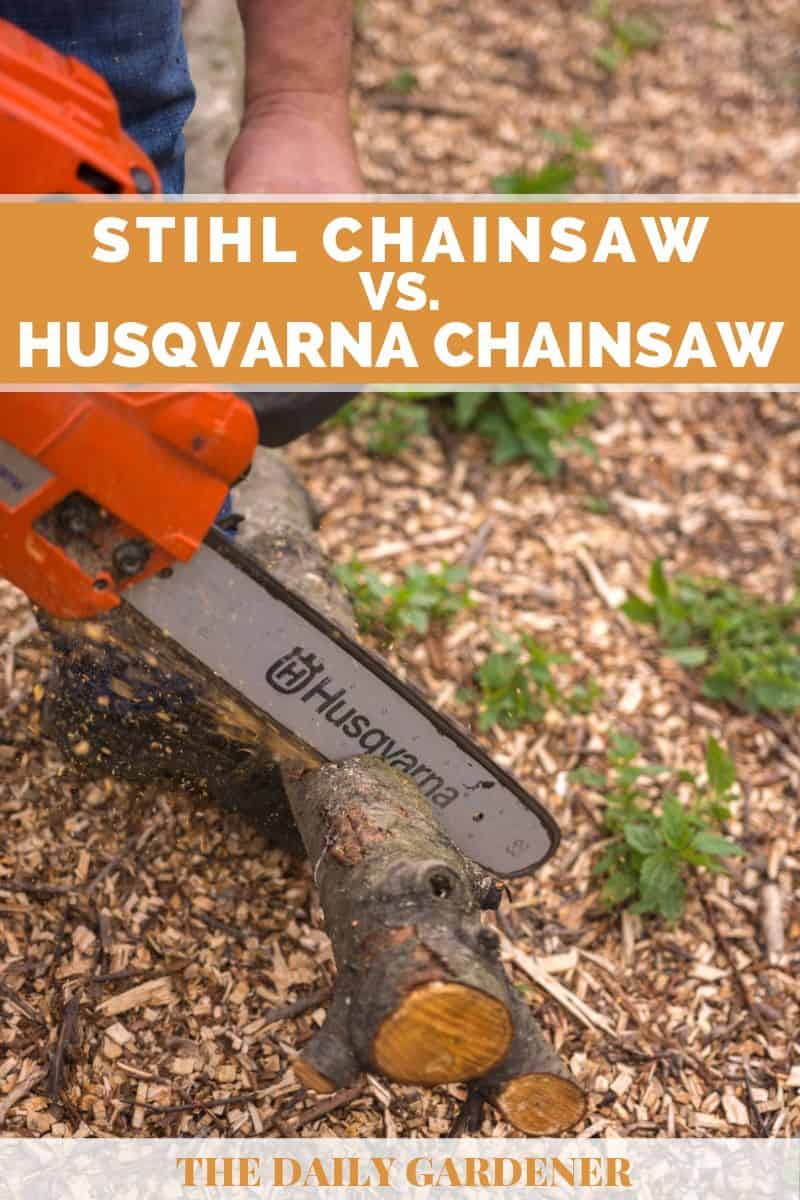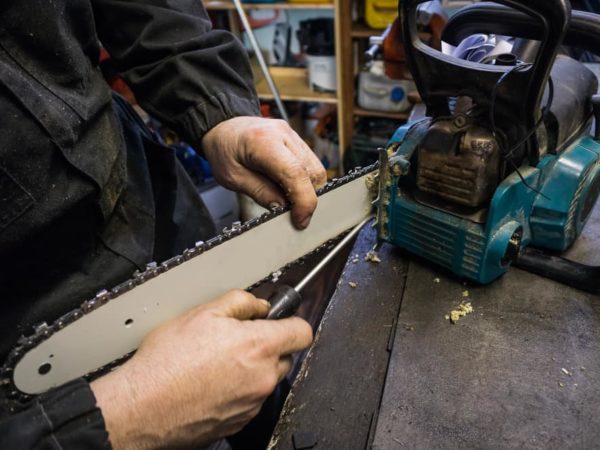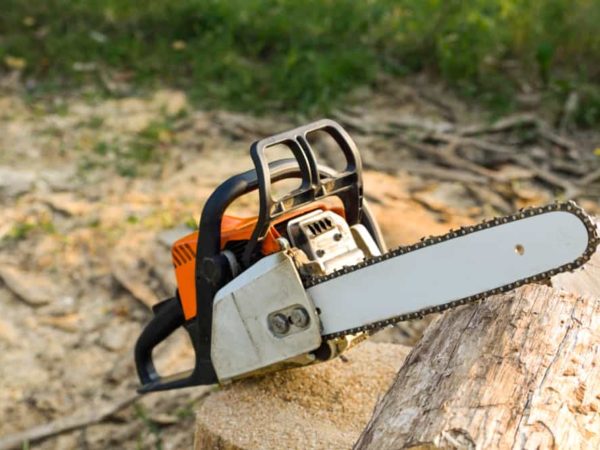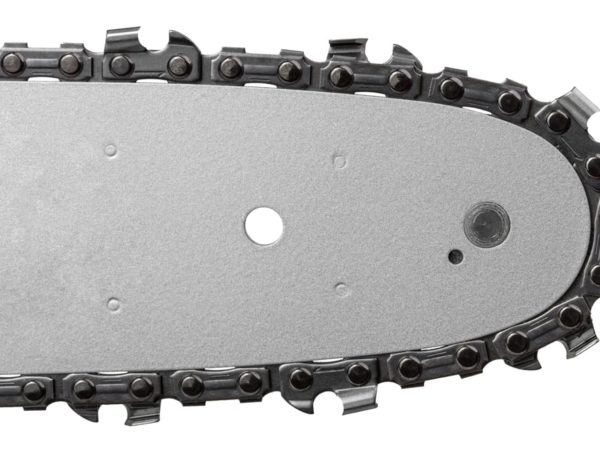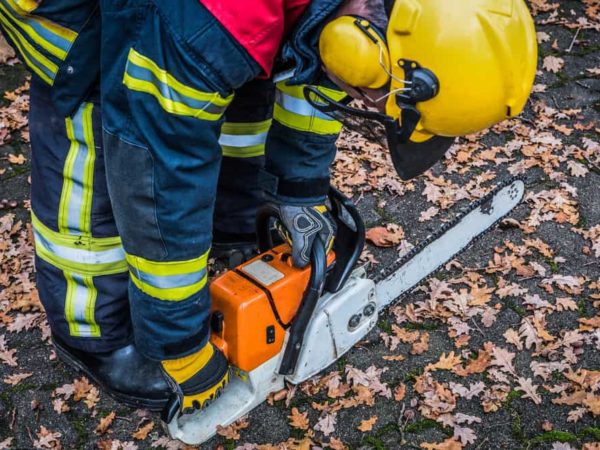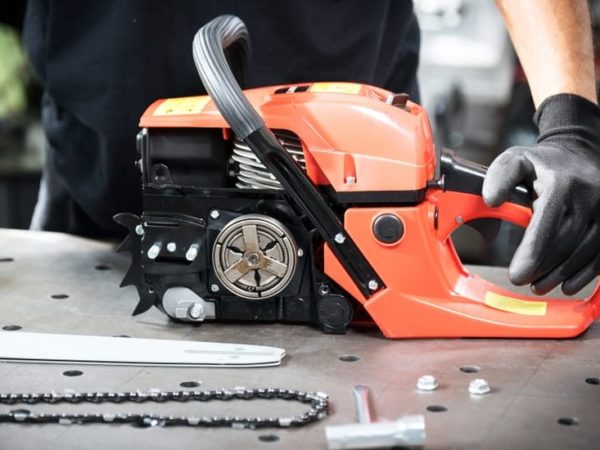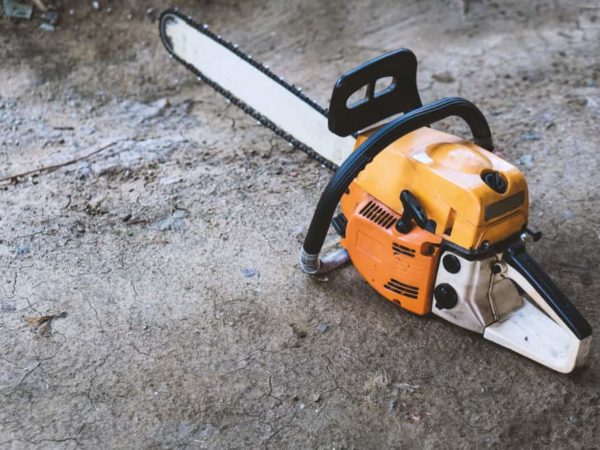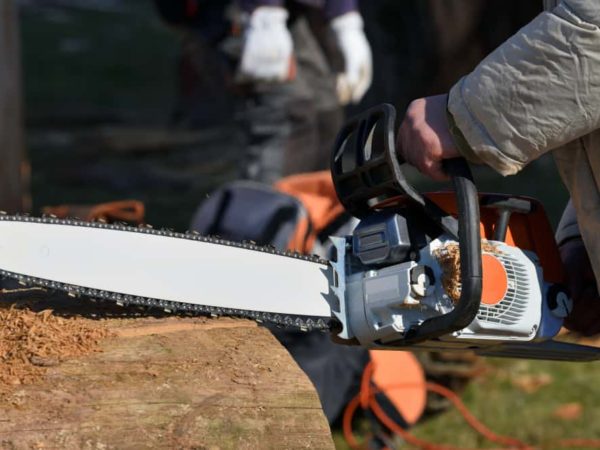There are many brands of chainsaw on the market, but if you want the very best, there are arguably only two real choices: Stihl or Husqvarna. Each of these brands has its own long history, and both have their fans and detractors.
Here, we look at both sides of the argument and weigh up the relative strengths and weaknesses of each to decide if there is a clear winner in the battle of Stihl vs Husqvarna chainsaws.
If you want to have a look at how a couple of these machines perform, check out this video – although this is only a comparison of two specific models rather than the brands as a whole.
Table of Contents
The Husqvarna story
As we have already mentioned, each of these companies has a long and venerable history – but one of them much more so than the other.
Of the two companies, Husqvarna’s history stretches back much further into the past. The company was originally founded in the Swedish town of Huskvarna in 1689 to produce firearms.
Down the years, the company branched out into the manufacture of other items, including sewing machines, bicycles, motorcycles and power tools, producing their first chainsaws in 1959.
The company was acquired by Electrolux – another Swedish company – in 1979. Since then, the company has gone on to produce many other types of garden equipment, although the Husqvarna brand is still most synonymous with its high-quality range of chainsaws.
Husqvarna’s international headquarters are now located in Stockholm.
The history of Stihl
Stihl doesn’t quite have the long history of Husqvarna, but the company has been making chainsaws for as long as chainsaws have existed. Indeed, Andreas Stihl, the founder of the company, is often credited with the invention of the chainsaw as we know it today.
In 1926, well before Husqvarna became involved in chainsaws, Andreas Stihl created an electric chainsaw and founded his company near the German town of Stuttgart to manufacture and sell it. A gas-powered version followed only a few years later.
The company and its products have come a long way since those early beginnings, and Stihl has become a brand that is recognized the world over.
Like Husqvarna, the Stihl now also produces a number of other outdoor tools, but it is still most closely associated with the chainsaws that first made the company famous.
Stihl vs Husqvarna – Which brand has the edge?
So much for the history, now let’s look at the chainsaws made by the two companies to see if we can determine which one comes out on top. We can break down the different aspects of the two companies’ chainsaws and look at them one by one.
1. Cutting power and speed
When it comes to cutting power, it can be hard to generalize. Both companies produce a range of chainsaws of varying sizes, including electric chainsaws and battery powered chainsaws, but if we compare like with like there is little to separate them.
Many claim that Husqvarna has the edge when it comes to how quickly they can cut through wood. However, for every person who will tell you that Husqvarna comes out on top, you can probably find another who would back Stihl.
It simply depends too much on the model as well as the bar and the chainsaw chain you are using, and we think both brands come out more or less even.
2. Handling
Husqvarna chainsaws tend to have larger fuel tanks, meaning they are usually heavier and so harder to wield than comparable Stihl models. This means if you prefer something lighter and easier to manage, Stihl is probably the best pick.
3. Fuel capacity
This flip side of this is that since Stihl chainsaws carry less gas, they need refueling more often. If you want a chainsaw that will allow you to work for longer periods without stopping, this means Husqvarna could be a better option.
4. Safety
Both brands of chainsaw come with important safety features including chain brakes and low kickback chains – although chains on both can be changed for more aggressive chains with a higher risk of kickback. Overall, when it comes to safety, there is little between them.
5. Anti-vibration features
Vibration can cause user fatigue as well as conditions such as vibration white finger, a reduction of blood flow to the hands due to excessive shaking.
Husqvarna chainsaws incorporate LowVib technology to reduce vibration while Stihl chainsaws feature effective vibration reducing handles. The result is that the two are evenly matched in this category.
6. Fuel Efficiency
Many – although not all – Husqvarna chainsaws feature the company’s X-Torq engine that is designed to reduce harmful emissions while increasing engine efficiency.
This means that Husqvarna chainsaws tend to be less polluting and consume less gas than comparable Stihl models, making Husqvarna the winner in this area.
7. Maintenance
All gas-powered tools require regular maintenance, and chainsaws are no different. Most people would agree that Husqvarna chainsaws require more attention than Stihl machines, making Stihl the better option if you want to spend less time servicing your tool.
8. Availability
One important difference between Husqvarna and Stihl – and one that could well be a deal-breaker for some people – is the availability of the different brands.
While Husqvarna products can be bought online like almost anything else, Stihl machines can’t. You can only buy a Stihl chainsaw from an authorized Stihl dealer, and if you don’t happen to have one near where you live, it might be much simpler to order a Husqvarna online and have it delivered to your house.
Furthermore, the same applies to having a Stihl chainsaw serviced. Stihl doesn’t encourage users to tinker with their chainsaws themselves, so if you want to have more than just basic service work done, you will have to take it back to the officially licensed dealer.
The reason Stihl does this is so the company can retain complete control over their products and can always guarantee perfect quality. However, for some people, this might end up being far less practical, making Husqvarna a better option for this reason alone.
So which is best?
We’ve looked at several aspects of the two brands’ chainsaws and in many areas, there’s little to choose between them. History might be interesting, but a longer history doesn’t necessarily translate into a better product. In other areas, one brand might have the edge over the other, but not by much.
As far as we are concerned, you can’t go far wrong with either of these brands. Unless the small differences we’ve mentioned make a big difference to you, both brands come highly recommended. Perhaps the best advice we can offer is to try them both out – perhaps by renting them for a day – and then choosing the one you feel most comfortable with.
Don’t forget to pin it!

